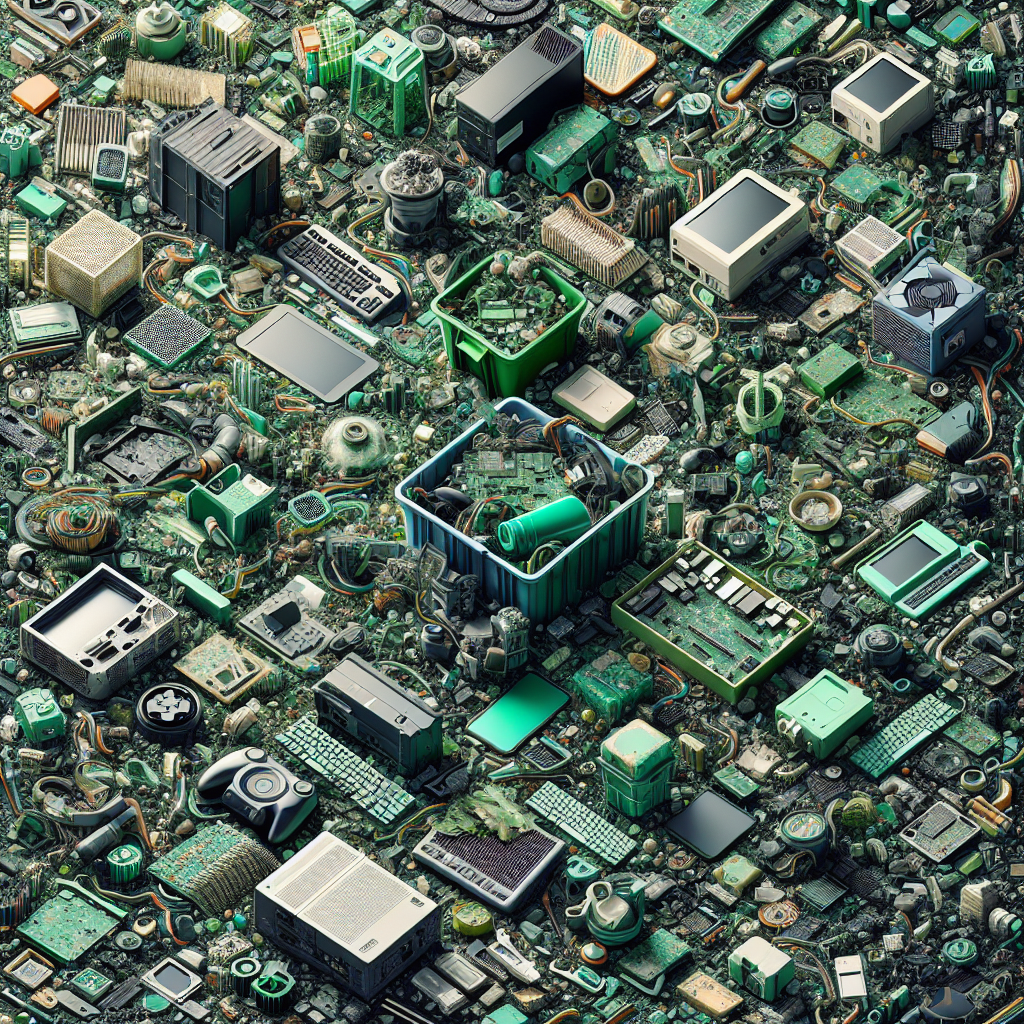Blog Ecobraz Eigre

Circular economy: the role of e-waste in the new green economy
The growing production of e-waste represents a significant environmental challenge, but also a vital opportunity within the circular economy to build a green economy. This article explores how recycling and reusing e-waste contributes to sustainability, preserving natural resources and reducing environmental impact.
What is Circular Economy?
The circular economy is an economic model that aims to continuously reuse resources, reducing waste and promoting sustainability. Unlike the traditional linear model, which follows the "extract, produce, dispose" cycle, the circular economy prioritizes the reuse, recycling and regeneration of materials, extending the life cycle of products.
The e-waste dimension
Electronic waste, or e-waste, encompasses discarded devices such as cell phones, computers, televisions, batteries and other electronic equipment that has lost its usefulness. With rapid technological advances, the volume of this waste is growing exponentially, making it one of the biggest global environmental challenges. It is estimated that more than 50 million tons of e-waste are generated worldwide every year, of which only a small proportion receives proper treatment.
Environmental impacts of e-waste
The improper disposal of e-waste causes contamination of the soil, water and air, due to the presence of toxic substances such as lead, mercury and cadmium. These elements can enter the food chain, threatening human health and biodiversity. In addition, the waste of valuable materials present in this equipment, such as gold, silver and copper, represents a significant loss of non-renewable natural resources.
The role of the circular economy in e-waste management
The circular economy offers effective solutions for e-waste management through the collection, recycling and reuse of these materials. Some of the main strategies include:
- Mechanical and chemical recycling: Techniques that allow the recovery of metals and electronic components, reducing the need for mineral extraction.
- Disassembly and reuse: Taking advantage of functional parts to repair or revitalize devices.
- Sustainable design: Development of electronic products with a focus on easy disassembly, reuse and recycling.
Environmental and economic benefits
Adopting circular economy practices for e-waste brings several benefits, such as:
- Pollution reduction: Minimizes the environmental impact of toxic waste and avoids contamination.
- Preservation of natural resources: Reduces mineral extraction and saves energy.
- Generation of green jobs: Creates opportunities in activities such as selective collection, recycling and technological innovation.
- Innovation and competitiveness: Stimulates the development of sustainable technologies and more resilient business models.
Challenges and future prospects
Despite progress, there are still obstacles to consolidating the circular economy in the e-waste sector, including the lack of efficient public policies, low public awareness, and logistical difficulties for collection and recycling. Investing in environmental education, adequate infrastructure and specific regulations are essential steps to overcome these challenges.
The future of the green economy depends on the integration of clean technologies, sustainable practices and active participation by society, showing that e-waste, when properly treated, can be a valuable resource for the circular economy.

Deixe um comentário
O seu endereço de e-mail não será publicado. Campos obrigatórios são marcados com *